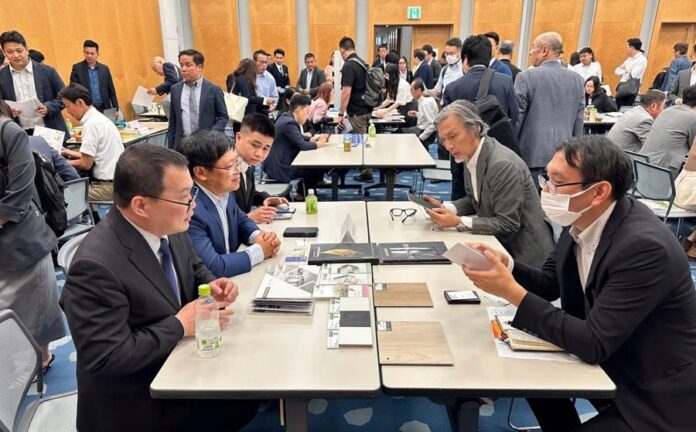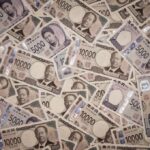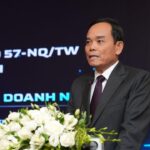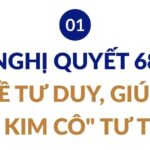On May 27, 2025, a Vietnam-Japan economic cooperation conference took place in Osaka, Japan. This event was organized by the Trade Promotion Agency of the Ministry of Industry and Trade of Vietnam, in collaboration with the Vietnam Trade Office in Osaka and the Osaka city government.
Speaking at the conference, Mr. Bui Quang Hung, Deputy Director of the Trade Promotion Agency, said that since the establishment of the “Comprehensive Strategic Partnership,” relations between Vietnam and Japan have flourished in many fields, especially economics, trade, and investment. Japan is currently Vietnam’s fourth-largest trading partner, after the US, China, and South Korea.
According to statistics from Vietnam Customs, in 2024, the total import and export turnover between Vietnam and Japan reached 46.20 billion USD, an increase of 2.77% compared to 2023. Vietnam’s exports to Japan reached 24.61 billion USD, a surge of 5.55%. The two countries’ goods structure is complementary, not competitive. In the first four months of 2025, Vietnam’s exports to Japan reached 8.5 billion USD, an increase of 12%, and imports reached 7.9 billion USD, a rise of 6.5% compared to the same period last year. These positive figures indicate considerable potential for expanding bilateral cooperation.
“Currently, the two countries are members of three bilateral and multilateral Free Trade Agreements (FTAs): the Vietnam-Japan Economic Partnership Agreement (VJEPA); the ASEAN-Japan Comprehensive Economic Partnership (AJCEP); and the Comprehensive and Progressive Agreement for Trans-Pacific Partnership (CPTPP). These agreements provide numerous opportunities and favorable conditions for trade activities between the two countries,” emphasized Mr. Hung.
Especially in 2025, against the backdrop of global economic challenges, including geopolitical tensions and trade protectionism, and the initial impact of the US tax policies on FDI and the structure of the global supply chain, strengthening the Vietnam-Japan Comprehensive Strategic Partnership is of utmost importance for the socioeconomic development of both nations.
“With a desire to promote trade and investment cooperation between the business community and local governments of the two countries, the Trade Promotion Agency regularly collaborates with relevant Japanese agencies and organizations to implement trade connection programs,” Mr. Hung emphasized.
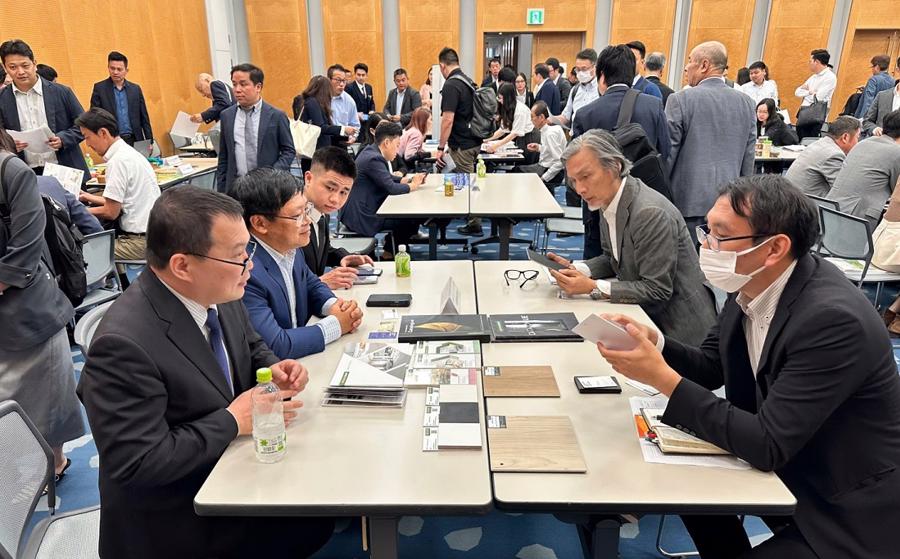
Sharing at the event, Ms. Wada Aya, Director-General of the Osaka City Economic Strategy Bureau, said that since Osaka City and Vietnam signed the Business Partner City agreement in Ho Chi Minh City in 1997, the two sides have maintained continuous exchanges through organizing roundtable conferences, economic cooperation and trade, and seminars.
Moreover, Ho Chi Minh City and Osaka City also signed a Memorandum of Understanding (MOU) on cooperation in key fields in 2011. This MOU was renewed during the Ho Chi Minh City delegation’s visit to Osaka in May 2024. The two sides pledged to actively implement policy dialogues and technology transfers in economics, the environment, water management, and further strengthen the relationship between the two cities.
At the conference, 28 Vietnamese businesses introduced many products to their Japanese counterparts, including agricultural and food products (such as cassava starch, dried and frozen seafood, tea, coffee, spices, fresh agricultural products, almond cookies, etc.); mechanical and electronic components; construction materials; household products; and perfumes, to promote mutually beneficial cooperation opportunities.
Ms. Quyen Thi Thuy Ha, Head of the Vietnam Trade Office in Osaka, said that Japan is an important market for Vietnamese agricultural products. In 2024, exports of processed agricultural products (especially fresh fruit and seafood) to Japan tended to increase sharply due to market opening agreements and product quality improvements gradually meeting Japan’s high standards.
Vietnamese and Japanese businesses are collaborating to develop high-tech agriculture in Vietnam, especially in animal husbandry, aquaculture, and organic agricultural production. Japanese companies also provide advanced technologies in quality management and agricultural product preservation. Therefore, this trade conference has opened up many new connection opportunities for businesses from both countries, contributing to promoting more effective and extensive economic relations in the new phase.
The University of Technology and VNG Corporation: Nurturing a Dynamic Trio Partnership.
On May 24th, the Ho Chi Minh City National University launched a program titled “Resolution No. 57-NQ/TW: From Vision to Action – A Collaborative Model for Government, Academia, and Enterprise.”
“Vietnamese Private Sector: No Need for Praises, Just Treat Them as the Norm”
The private sector in Vietnam has faced numerous challenges, but the introduction of Resolution 68 has been a game-changer. This pivotal resolution has unlocked a world of opportunities, acting as a key to overcoming obstacles and paving the way for remarkable growth and transformation within the private sector. It has truly been a catalyst for shaping the nation’s economy and fostering a thriving business environment.

